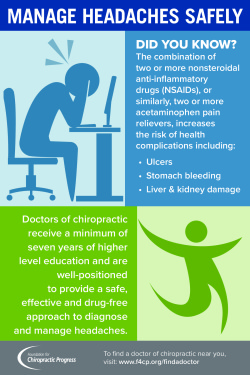Reveal The Underlying Relevance Of Your Pain In The Back And Equip Yourself To Improve Your Wellness
Reveal The Underlying Relevance Of Your Pain In The Back And Equip Yourself To Improve Your Wellness
Blog Article
Authored By-Koch Eason
If you're experiencing neck and back pain, your body could be attempting to tell you something greater than just discomfort. acupuncture for insomnia feels can offer valuable hints about your general health. Recognizing the specific type of pain you're really feeling and any kind of accompanying signs and symptoms is vital to untangling the enigma behind your pain. Allow's explore the usual conditions and symptoms associated with different kinds of neck and back pain to clarify what your body may be signaling.
Kinds Of Back Pain
When it involves pain in the back, there are various kinds that you might experience. One typical kind is muscle pain, usually caused by overuse, stress, or injury to the muscles and tendons supporting the spine. This kind of pain can vary from moderate discomfort to extreme and devastating discomfort.
One more kind is nerve discomfort, which can arise from conditions like herniated discs or sciatica. Nerve discomfort frequently provides as a sharp, shooting experience that radiates down the leg.
Joint pain in the back can originate from problems like arthritis or sacroiliac joint dysfunction. This sort of discomfort is commonly felt in the reduced back and can be intensified by specific activities.
In addition, neck and back pain can be connected to structural troubles such as spine constriction or vertebral cracks. Recognizing the kind of back pain you're experiencing is critical in figuring out the proper therapy and management strategies.
Common Symptoms to Look For
Relocating past the numerous sorts of back pain, it is essential to recognize the common symptoms that can signal underlying issues.
Consistent neck and back pain that intensifies with activity or at night might show a much more major issue. Pins and needles or tingling in the legs or feet, particularly when accompanied by weakness, may point to a nerve-related concern. If you experience unexpected weight management along with back pain, it could be an indicator of an extra systemic condition.
Take notice of any kind of changes in bladder or digestive tract function, as this could be connected to spinal cord compression. High temperature, chills, or night sweats together with back pain might indicate an infection. Keep an eye out for discomfort that emits down one or both legs, potentially a sign of sciatica.
Health And Wellness Conditions Linked to Pain In The Back
If you deal with pain in the back, it's critical to understand the possible health and wellness conditions connected to this discomfort. Pain in the back can be a signs and symptom of various underlying problems, including muscular tissue stress, herniated discs, osteoarthritis, spine stenosis, and even conditions like kidney rocks or infections.
Muscle mass strains prevail and typically result from lifting heavy items or unexpected motions.
Herniated discs occur when the soft cells in between vertebrae protrudes, causing nerve irritation.
Osteo arthritis, a degenerative joint disease, can result in pain in the back as cartilage material wears down.
Spinal stenosis, the constricting of the back canal, can tax nerves.
Kidney rocks may create intense pain in the back if they move into the urinary system system.
Infections like spine osteomyelitis can additionally manifest as neck and back pain. Understanding these potential wellness conditions can assist you look for proper treatment and management for your pain in the back.
Conclusion
So, next time your back hurts, take note of the type of pain and accompanying symptoms. Maybe a signal from your body regarding underlying wellness conditions like muscle mass stress, nerve concerns, joint problems, or perhaps architectural issues. By acknowledging back treatment near me , you can take aggressive steps to address the origin of your pain in the back and improve your total health and well-being.
